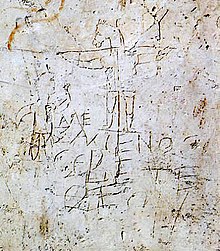We are talking about separate issues here. You are focusing on things\stories entirely supernatural or just focusing on the supernatural aspects.
My point is that I believe that it's false and anachronistic to treat Greek (or any other people's) myths as if they were the same phenomenon as contemporary fiction.
Fiction writers today are fully aware that they are making up stories and never intend that their readers believe that they are true. The vast majority of readers know that the fiction that they are reading shouldn't be taken literally as fact. It's a free exercise of the imagination.
In ancient Greece, we see archaic Greece emerging from the Greek dark age with many local stories being told in different places about traditional gods and heroes. The stories emerged from out of folk-legend and most likely were many centuries old even by that time. They didn't have living authors or anyone that people could point to as having imagined them. The myths were 'things said' about the gods and heroes, often things said in a particular place, that had been told and retold for many generations and were highly traditional.
A local polis' sense of identity and patriotism was often shaped by the local stories, its civic temples were erected to the gods of the stories and its holidays and religio-patriotic festivals commemorated them. That's why we find such impressive temples to Athena upon the Athenian acropolis.
I think that it's true that as Greek society became more sophisticated, people started to realize that these traditional local stories weren't always consistent one with another. They also started to realize that the behavior of the gods and heroes as told in the old stories didn't exactly meet the newer classical Greek standards of ethics and deportment. So a new and more skeptical attitude towards tradition made its appearance, in which the myths started to be treated more as we treat fiction today, in a more literary manner, as the 'things traditionally said' about the gods and heroes in some particular place, but without anyone necessarily having to fully commit to the literal truth or the ethical appropriateness of what was said.
The Greeks had always had a much more relaxed relationship with their myths than some other contemporary peoples, like the Hebrews, had with theirs.
Finally we see the appearance of Greek literature and drama, which moves much closer to what we think of today as fiction. But in the classical period that was still fiction with a very serious purpose, typically based upon the traditional material and then retelling the stories in imaginative new ways so as to communicate important new ideas. It wasn't really until the Hellenistic period several centuries on that Greek literature and drama were telling stories simply for the purposes of entertainent, often taking the form of comedy and light diversion.
Weather any of these people existed as humans or based off of real people is certainly possible. I cant say one way or another.
That's why I used the ancient Greek legend of Orpheus as an example. This is a figure that might very well have originally been a real flesh-and-blood individual. Most of the ancient Greeks believed that he was. They even had scholarly arguments about his date and about whether he had actually written all the poems attibuted to him. But some Greeks, including Aristotle, questioned his historicity and argued that he was entirely legendary. Certainly by classical Greek times the memory of any real Orpheus had been almost totally obscured by legend -- his divine birth, his extraordinarily long lifespan, his adventures, his descent to the underworld and his supernatural skill at playing entrancing music. That was kept alive and embroidered by the religious sect that existed in his name, teaching his Indian-style doctrine of reincarnation. (Both Pythagoras and Plato accepted it.)
The analogy with Jesus should be clear. Jesus probably was a real individual, but just like Orpheus, we don't have access to any objective historical descriptions of the man and his activities. What we have instead in both cases is the legend, the stories that pious individuals subsequently told about their religious founders, about his supernatural exploits and about his trancendental purpose and meaning.
The legends that accreted around the historical Buddha are yet another example of exactly the same phenomenon.


